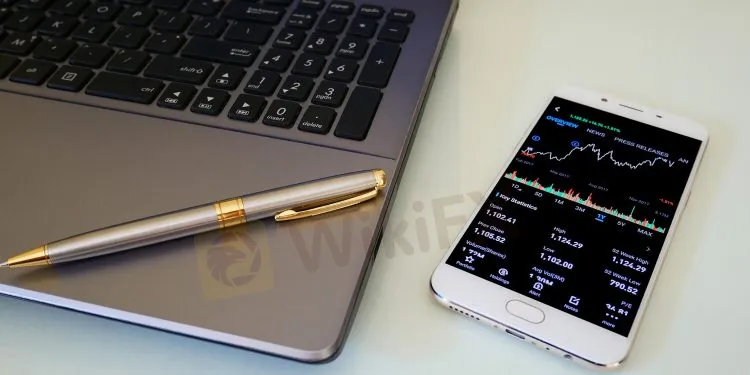简体中文
繁體中文
English
Pусский
日本語
ภาษาไทย
Tiếng Việt
Bahasa Indonesia
Español
हिन्दी
Filippiiniläinen
Français
Deutsch
Português
Türkçe
한국어
العربية
Why is It Important to Know The Right Brokerage Fee?
Abstract:A broker and a brokerage charge are probably not unfamiliar terms to traders and investors. However, you should not only study what they are, but also what they do (and how much you should pay).

A broker is a person or an organisation who assists you in completing your transaction. A brokerage fee is the money that compensates the service automatically.
The most common type of brokers are stockbrokers. That said, there are also other types of brokers in real estate or property, mortgage brokers, and in business, mostly B2B.
Brokers mostly charge you money in two varieties of payment. Respectively, they are percentage-based and flat rates. Depending on the brokers, the amount varies.
While brokers mostly handle the execution of transactions, they also sometimes charge for other services too such as regular reports. This, in addition, underlines the importance of knowing the right brokerage fees as people oftentimes pay brokers inappropriately in contrast to the services.
The Right Brokerage Fee
The right brokerage fee does not directly translate to the exact amount of percentage you have to pay. Instead, the right one means that you ensure that your brokers charge you the right amount according to the services they provide.
For starter, you can inspect the types of brokers you are dealing with. Mainly, there exists three types of brokers who offer different services at different prices.
Firstly, if you are using a full-time service broker, you can expect to receive services such as transaction assistance, research reports, tax consultation, and so forth. Per clients managed asset, the fee mainly ranges around 1% up to 2%.
Secondly, the downgrade version of a full-time broker is a discount broker. Unlike the preceding, discount brokers generally handle transactions only. Their commission is also lower and mostly flat.
The last-but-not-least type is the online broker which handles transactions online. Unlike the previous two, the fee for this broker depends on the broker itself. As they are a lot cheaper, their services are also a lot limited.

Disclaimer:
The views in this article only represent the author's personal views, and do not constitute investment advice on this platform. This platform does not guarantee the accuracy, completeness and timeliness of the information in the article, and will not be liable for any loss caused by the use of or reliance on the information in the article.
Read more

Navigating the Intersection of Forex Markets, AI Technology, and Fintech
The financial world is transforming, driven by the rapid integration of artificial intelligence (AI) and innovative fintech solutions. This change is most apparent in forex markets, where algorithmic trading and deep learning are redefining strategies, risk management, and decision-making. In this article, we explore how AI-driven technologies are not only revolutionizing forex trading but are also propelling fintech innovations that enhance customer experiences, bolster security, and unlock new market opportunities.

The One Fear That’s Costing You More Than Just Profits
The fear of missing out (FOMO) is NOT what you think it is! Read the three lesser-discussed components that contribute greatly to FOMO trading!

Why More People Are Trading Online Today?
Discover why online trading is booming with tech, AI, and a push for financial freedom. From stocks to crypto, it’s a thrilling hustle for all.

Bitpanda Secures Full Broker-Dealer License in Dubai
Bitpanda has officially obtained a full broker-dealer license from the Dubai Virtual Assets Regulatory Authority (VARA), marking a significant milestone in its international expansion. This approval, which follows preliminary authorization granted three months earlier, enables the European digital asset exchange to introduce its comprehensive suite of virtual asset services to investors in the United Arab Emirates (UAE).
WikiFX Broker
Latest News
Why Are Financial Firms Adopting Stablecoins to Enhance Services and Stability?
Experienced Forex Traders Usually Do This Before Making a Lot of Money
Octa vs XM:Face-Off: A Detailed Comparison
When High Returns Go Wrong: How a Finance Manager Lost RM364,000
Bridging Trust, Exploring Best—WikiEXPO Hong Kong 2025 Wraps Up Spectacularly
Fidelity Investments Explores Stablecoin Innovation in Digital Assets Sector
Interactive Brokers Expands Crypto Trading with Solana, XRP, Cardano, and Dogecoin
SEC Ends Crypto.com Probe, No Action Taken by Regulator
Why More People Are Trading Online Today?
Gold Surges to New Highs – Is It Time to Buy?
Currency Calculator







